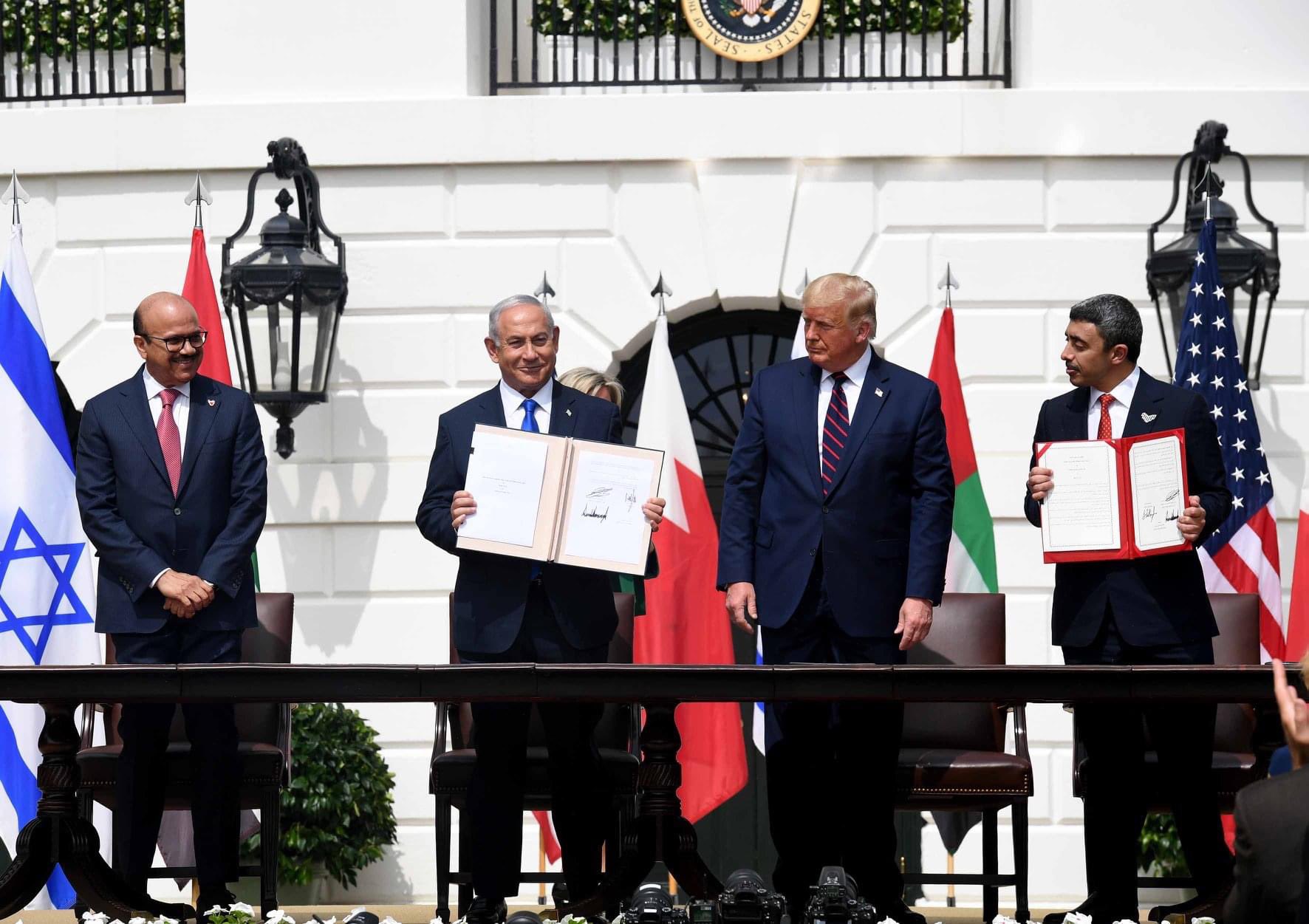The tech fallout of the agreement between Israel, the Emirates and Bahrain (a Trump success). Speak White

What and how many are the interests of the Emirates and Bahrain in the development of normal economic relations with Israel? Start Magazine in-depth analysis with the analyst Cinzia Bianco (European Council on Foreign Relations)
On Tuesday, against the backdrop of the White House marbles, an iconic and historic scene stood out: the flags of Israel, United Arab Emirates, Bahrain and the United States hoisted side by side.
The Abrahamic agreements, with the normalization of relations between Israel on the one hand and the United Arab Emirates and Bahrain on the other, undoubtedly represent one of the most tangible foreign policy achievements of the Trump administration, which has managed to break one of the taboos most granite in the world.
But how did this result come about? What and how many are the interests of the Emirates and Bahrain in developing normal relations with Israel? And above all, will this first wave be followed by a second one?
Start Magazine posed the questions to the Italian analyst who better than others knows the political dynamics of the Persian Gulf, who studies and discloses as an analyst at the European Council on Foreign Relations: Cinzia Bianco.
How did this "explosion of peace" between Israel, the United Arab Emirates and Bahrain come about?
Donald Trump's administration is clearly pushing what it considers its Arab allies to move towards normalization of diplomatic relations with Israel. Facilitating Israel's regional position is a goal that dates back to the beginnings of Trump's presidency: as early as 2017, the president and his son-in-law and favorite adviser, Jared Kushner, had tried to involve the United Arab Emirates (UAE) and Saudi Arabia. as key players in the strategy behind the “Deal of the Century”. Although Abu Dhabi and Riyadh had accepted the invitation, over the years both have demonstrated the inability to carry out the mission, or to convince other Arab countries to sign the agreement of the century. Trump therefore changed his strategy, moving directly to asking for bilateral normalization.
Why were the UAE the forerunners?
With the UAE it was easy: Abu Dhabi wants to strengthen coordination with Israel, especially in the tech and cyber fields, and in the confrontation against Turkey and Iran. The de facto Emirati leader Mohammad bin Zayed also knows that by formalizing this normalization with Israel on August 13, he has increased his already very strong position in Washington, and that this political capital can also be spent under a possible Joe Biden administration. In fact, Mohammad bin Zayed does not want to link this move solely to the figure of Trump, and for this reason he did not go in person to the signing ceremony in the White House.
And with Bahrain?
The first thing to say is that Bahrain has always had unofficial but intense relations with Israelis. It can be said that Bahrain was the only half safe port for them in the Gulf. This is why it was thought that Bahrain would be the first to officially recognize Israel. The other thing to say is that Bahrain only moves with the green light of Saudi Arabia, and this green light must have come credibly with Jared Kushner's visit to Saudi Arabia a few weeks ago. The real difference with the Emirates is that with the latter Israel will sign many trade agreements and develop intense cooperation especially on cyber and AI. This is something that will remain very marginal with Bahrain.
Do you think other normalizations will follow?
The reactions to these agreements in the other Gulf countries, on the other hand, make it clear how this dominance of normalization in the Gulf will most likely end here. In Kuwait and Oman, the reaction of civil society and pseudo-political groups has been of utter rejection. Qatar, now totally dependent on Turkey, could only agree to the hypocritical rhetoric of Ankara – which has consolidated diplomatic relations with Tel Aviv – but which, given the strategic involvement of the Emirati archenemy, sees these agreements as the attempt to strengthen the anti-Turkish front.
And with Saudi Arabia?
With Saudi Arabia, the undertaking is decidedly more difficult: for Riyadh, normalizing relations with Israel is a decidedly more complicated move, given its greater internal political complexity, its aspirations for regional leadership and its delicate position as leader of the Muslim world. . To date, there is simply a lack of the right incentives and the right conditions. Crown Prince Mohammad bin Salman has been preparing his delicate transition to the throne for months, while his father, King Salman, a man of the older generation, is vehemently opposed to any softening with Israel. What Riyadh has been able to offer is the green light for normalization between Israel and little Bahrain, closely linked to Saudi Arabia.
This is a machine translation from Italian language of a post published on Start Magazine at the URL https://www.startmag.it/mondo/le-ricadute-tech-dellaccordo-fra-israele-emirati-e-bahrein-un-successo-di-trump-parla-bianco/ on Thu, 17 Sep 2020 12:40:02 +0000.
